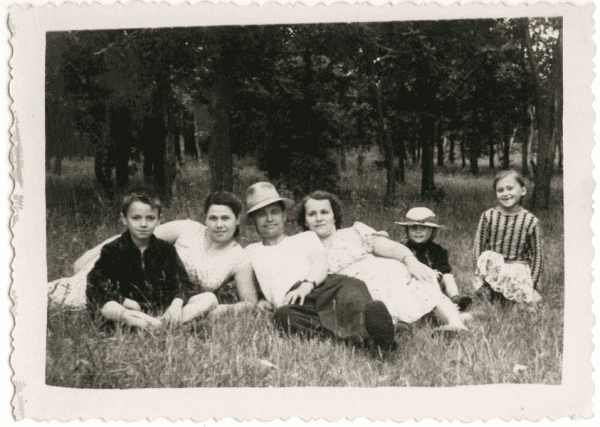Do you have trouble coping in today’s world? Are you stressed all the time? According to the World Health Organization stress is an epidemic in the 21st century. The way we live, work and socialise has rapidly changed over the last decade. And you can expect it to continue with how fast technology changes to make our lives easier.
For thousands of years our environment changed little with the evolution from living in caves to farming communities. Then we had the agricultural, industrial and technological revolutions within a short space of time. Now, as we head into the age of experience, every aspect of our lives has changed. How we live and work to our expectations from life bears little resemblance to the last 40 years. But our brains have been left behind. It takes the brain 2000 years to evolve to meet environmental changes.
Dramatic environmental changes
Up until the 1960s mothers were the primary caregivers and families predominantly had single incomes. Most women did no work and stayed home to look after their families. You spent your money at the local haberdashery, local butcher, K-mart or a department store. Restaurants and takeaway food outlets were rare. Most people ate at home and their entertainment was going to the local drive-in theatre for a movie at a cost of $10 per car for entry.
Life was simpler then. You slept without locking your doors and with the windows open. Kids played in the street all day and someone would feed them. There was no fear of them disappearing.
Holidays were simple with families going camping or caravanning. People could not afford to fly overseas for holidays.
The changes to our communities and environment are huge over the last 40 years.
Letting go of traditional values
All of a sudden, our consciousness shifted. We awakened to a whole new world of possible lifestyle choices. In the 1970s television became more popular with colour television introduced into Australia in 1975. Marketing became more sophisticated and we abandoned traditional values.
Beliefs a woman’s place was in the kitchen began to change. This allowed women to emerge wanting a better life with more lifestyle choices.
During the 1980s, people wanted bigger homes and a more luxurious way of living. People wanted more than the traditional 3-bedroom 1-bathroom home. Travelling became more affordable and, by the late 90s, we saw the emergence of cafes and restaurants. Up until then people still dined at home and held dinner parties in their homes. A new culture sprang up where it became fashionable to go to out for dinner so we moved away from community dining as a culture.
Society is constantly changing, emerging, awakening and breaking away from traditional values. Whether we like it or not we can’t change it. This is our reality.
Your brain is hardwired for basic survival
The brain is hardwired for basic survival. To provide shelter, food, warmth and security. We are wired to be basic survival needs people.
But in the 21st century, life has gone beyond basic survival needs. Our needs have completely changed. They have gone from basic survival to one of material gain and lifestyle experiences. Everything is based on experiencing life. In the 1940s and 50s experiences were a picnic, a day at the beach, a holiday on the coast. Now we expect instant gratification.
You can see this in:
- how our expectations of service have changed
- the use of handheld devices for instant access to the world
- the huge growth of online shopping.
As a culture we want everything now. And people feel stressed when this is not achievable.
Conditioned to experiences
Children are also conditioned for instant gratification. In the 1960s you got one toy at Christmas and today children get toys all the time. Their need for experiences is developed right from a baby with all the things we give them. We live in a world based around experiential needs.
Being conditioned to experiences costs a lot of money. The experience might be living in a better-quality house; sending children to a private school; going out to dinner two or three times a week; boarding a plane to Europe for a holiday. Even birthday parties have changed with parents spending hundreds of dollars on the celebration.
We are hardwired for the emotional high experiences give us. With that comes the stress to support it. In the 1960s, a family of six lived in a modest three-bedroom home with one television and one car. Now our brains are thirsty for more. Marketing conditions your brain to want more and more so we have televisions in almost every room and at least two cars. Our brains have awakened to a new way of living and with that comes the stress of maintaining this new type of lifestyle.
Addictive nature of the brain
This new age of experiences is an exhausting reality to maintain. The hardest thing is letting go of the emotional charge experiences give you. Some people can walk away but others are addicted to the experiences of life.
Experiences are naturally addictive. The emotional charge in the brain is so great it wants instant gratification all the time. Experiences excite the imagination and your imagination fuels your emotions so you become addicted. And with this comes stress because experiences cost money.
How do you manage that? You have to lower your expectations. Learn how to have experiences differently. Change your lifestyle to manage within your budget. You need to take the pressure off financially to reduce stress.
The brain has an addictive nature. It becomes addicted to junk food, shopping, chocolate, holidays, alcohol, sex, to all sorts of things. Now both parents have to work to support the family.
Your brain becomes stressed from the pressure of working long hours, and trying to juggle work and family life. Where in the 1960s people were employed to use their bodies, now they are employed to use their brains. We have to change the way the brain adapts to all these changes so we can cope with the 21st century.
If you look at the world as a whole, we have to adapt to changes on almost a daily basis. Take the horror of the Christchurch massacre. Look at the impact this had on social media and gun laws in New Zealand. New technology rapidly changes and so has the way we learn over the last 40 years. All this change puts huge stress on the brain because it prefers routine and known patterns.
Your brain is genetically wired to be in an environment that is less stressful but has become addicted to experiences. Finding yourself affected by consumption stress means you have to change your whole way of thinking.
Driving factors of consumption include:
- The desire to show off your success.
- The need to have what other people have.
- Prolific advertising and product placements.
- Easy access to credit.
- A society that favours instant gratification over hard work.
People work in stressful jobs to keep up with consumption then come home to manage a family in crisis. Everyone is stressed. Children from school and the parents from working. Families are stressed emotionally, financially, psychology and biologically.
Financial stress is a reality
Financial stress is a reality no matter where in the world you live. Wages have stagnated in Australia barely keeping up with inflation. Yet the cost of living continues rising. Families face the stress of meeting high costs of living and basic utilities. It becomes harder than ever to afford basic food, shelter, water and electricity let alone the luxury of experiences.
While the ABS calculates the average Australian wage at $85,000 a year, Treasury figures indicate it is closer to $62,000. But, according to calculations from actual tax figures by the Grattan Institute, the median wage is closer to $45,000.
According to an ME Bank report, 42 percent of people did not get a pay rise in the last year and 34 percent had their income cut. The report also found 17 percent of Australians struggled to pay their bills on time. And 19 percent asked family and friends for financial help, while 15 percent sold something to make ends meet.
We are now living in a paradigm where the brain is not programmed to support the stress of the 21st century.
Surviving the 21st century
The 21st century is a century of survival. We are not satisfied with what we have. We want more. Most people are not content because experiences only last for only a short time. Then, when watching television, they see something and, all of a sudden, want what they see. Has this happened to you? You see something advertised and you want it. You may not even know why you want it, but you do. Your imagination triggers emotions and, before you know, it programs your brain to want that new experience.
You need to find a place in your life where you are content with what you have when suffering lifestyle stress. Manage your environment and what the collective conscious dictates.
It takes 2000 years for the brain to evolve. The unconscious brain is your hardware and can adapt to different changes in the environment but your software, your conscious brain, is under constant stress so it keeps crashing.
What we do at the Blissiree Pty Ltd is update your hardware, because the unconscious brain’s programming is 2000 years old, and update the software so it can cope with the 21stcentury. Your software is based on your ancestral conditioning and your brain accesses up to seven generations of genetic memory. Given the history of our planet it’s no wonder our brains do not cope with the stress of uncertainty. The 21st century is full of uncertainty so this adds extra stress to our brain and keeps it in survival patterns of behaviour.
We are under so much performance stress just to survive. I have found a common thread between the emerging patterns of anxiety in young children and young adults, and their mothers working up until a month before the baby was born. This new way women experience their pregnancies has a direct impact on the likelihood of their babies being born with stress patterns.
The 21stcentury is one of constant stress, problems and challenges. This triggers your brain into survival patterns of behaviour and defaults into its instinctive behaviour of fight or flight.
Your brain doesn’t know the difference from money, work, learning, relationship, parental, emotional, psychological or environmental stresses. Any stress response to the brain is a warning sign your life is under threat. In the 21st century most of us don’t remove ourselves from the cause of our stress triggers. Because we don’t flee perceived threats, our brain locks into a constant state of survival or crisis. Once the brain is in a constant state of survival, anxiety and depression become an emotional state and your mental health suffers. After a long period of chronic stress your brain eventually burns out and fatigue becomes normal.
Addicted to experiences
The brain is addicted to experiences so it programs you to want more. We are the puppet and the unconscious brain the puppeteer. You know what you want but you do not know how your unconscious brain programs you to think and feel the way you do.
Your conscious brain makes you human and your unconscious brain is in charge of the default patterns that allow you to function is an unconscious way. The unconscious brain is your master or CEO.
When you consciously get excited about something, your unconscious brain programs you to want more. This is the same behaviour as computer addiction in children. You only have to see how computer addiction shapes a child’s imagination and emotions. The problem with an emotional addiction is if you don’t break it, children become adults who won’t be satisfied with what they have. And we will have a new generation of adults that get bored if not instantly gratified.
The only way to change that behaviour and get a sense of satisfaction with what you have when under lifestyle stress, is to reprogram your brain to accept and appreciate your life. You need to be open to changing the way you think to get off the consumption treadmill and take the pressure off. You have to update the hardware to become a super computer and change the software so it can adapt to the constant changes to survive the stresses of the 21st century.
Addiction to experiences has a huge impact on your mental health. It can cause you to be in a constant state of dissatisfaction. Never being happy with what you have and living a lifestyle beyond your means. The added pressure you put your brain under to maintain your standard of living creates a ripple effect on your mental and biological health. Your brain maintains your biological health while you sleep. When you do not get enough sleep to recover from the constant pressures of the 21st century, your health suffers.
The Blissiree Pty Ltd can help you thrive and not just survive in the 21stcentury. Contact us to find out more about how you can become more resilient to stress. It does not matter where you are in the world. We can work with you in our Spas, over the phone or via Skype.
We have an introductory offer that is only $79 to see if you are a perfect candidate for our Emotional Empowerment Program. This will fast track your hardware and software to adapt to the 21st century. Book a session now to find out how we can help you to do more than survive.









